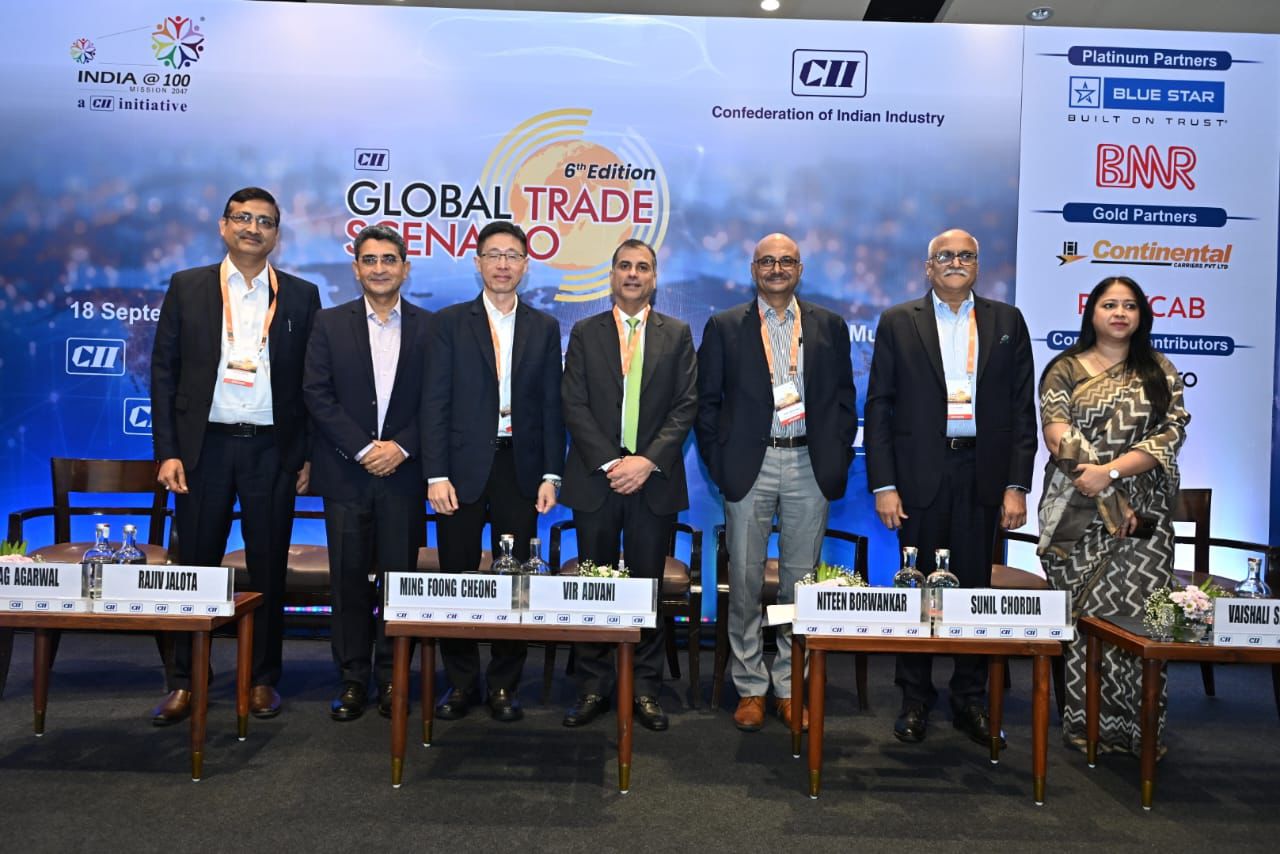
Harnessing strengths, driving change: India’s sustainable, innovative, and independent trade trajectory- CII Global Trade Scenario Summit
MUMBAI : The 6th Edition of the Global Trade Scenario convened here under the theme “Navigating Shifts, Defining the Future,” bringing together policymakers, diplomats, and industry leaders to chart India’s evolving role in global commerce.
The inaugural session featured Shri Rajiv Jalota (IAS), Advisor, Indian Ports Association; Shri Niteen Borwankar, CEO, SEZ, Jawaharlal Nehru Port Authority (JNPA); and Mr Ming Foong Cheong, Consul General of Singapore, alongside senior representatives from the United Kingdom, Australia, and India Inc.
Diplomatic Perspectives on Trade
Mr Ming Foong Cheong, Consul General of Singapore, underscored growing cooperation with India in digitalisation, sustainability, connectivity, advanced manufacturing, and biotechnology. Praising India’s autonomous foreign policy, he said: “In an increasingly interconnected world, India’s role in global trade is more important than ever. With its large internal market, green resources, and digital prowess, India is positioned to drive the future of trade and integration.”
Mr Mark Birrell, Trade Counsellor, British Deputy High Commission, highlighted progress on the India–UK FTA, calling it a breakthrough for small businesses and digital trade, with “an ambitious chapter on financial services.”
Ms Zoe Woodlee, Acting Deputy Consul General, Australian Consulate-General, said India’s ability to scale FTAs and collaborate on critical minerals is pivotal, while the Comprehensive Economic Cooperation Agreement (CECA) aims to strengthen supply chains. She noted a planned Centre of Excellence (CoE) to train youth.
Ports, Logistics and Maritime Growth
Shri Rajiv Jalota (IAS) pointed out that 80% of world trade by volume moves by sea and maritime trade is set to grow 2.4% annually until 2029. He stressed India’s focus on diversifying routes via the India-Middle East-Europe Economic Corridor (IMEC) and the International North-South Transport Corridor (INSTC).
He cautioned that global competitiveness now depends on green compliance, urging ports to transform into energy and data hubs with scalable green bunkering and shore power.
Shri Niteen Borwankar, CEO, JNPA, said:
“Reducing logistics costs hinges on strong collaboration, world-class infrastructure, and enabling policies. When industries and ports work seamlessly together, efficiency transforms from aspiration into natural competitiveness.”He identified infrastructure, logistics, and digitalisation as the three growth drivers.
Industry & Economic Voices
Mr Debopam Chaudhuri, Chief Economist, Piramal Enterprises, emphasized FTAs as a strategic tool for capital inflow and workforce absorption, calling for greater expansion of trade agreements.
Ms Ipsita Dasgupta, Sr VP & MD, HP India, Bangladesh & Sri Lanka, said:
“India’s trade future depends on how quickly we align today’s strengths with tomorrow’s opportunities, bringing together diverse voices to shape a resilient and inclusive path ahead.”
Mr Vir Advani, Chairman, Blue Star Ltd, urged industries to remain connected and collaborative in shaping a resilient global future.
Mr Anurag Agarwal highlighted innovation and sustainability as twin engines to “unlock opportunities that benefit businesses and the global economy.”
Mr Sunil Chordia, Chairman & MD, Rajratan Group, stressed the need for resilient supply chains and policies addressing climate change, resource scarcity, and technological disruption.
